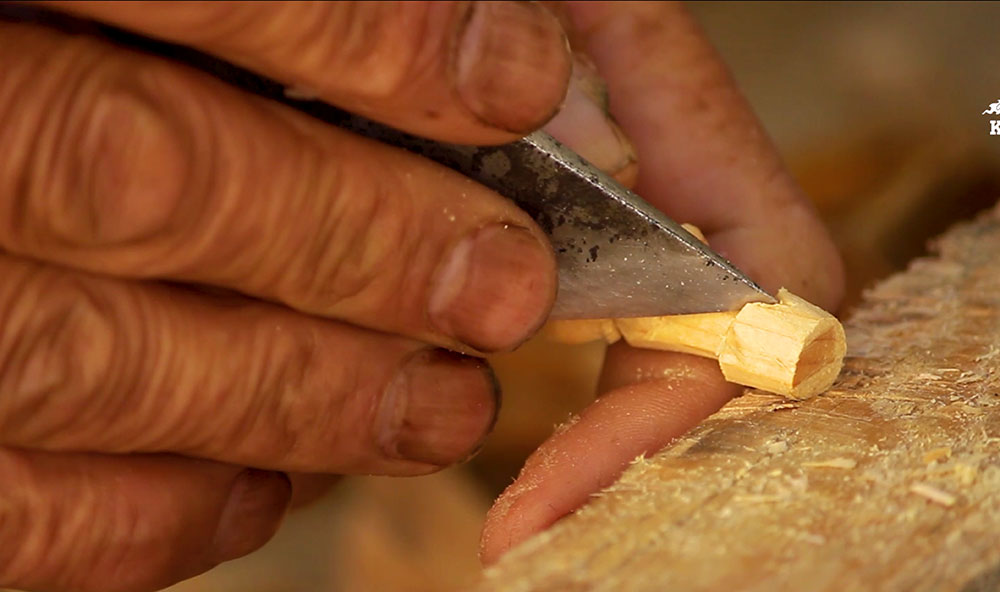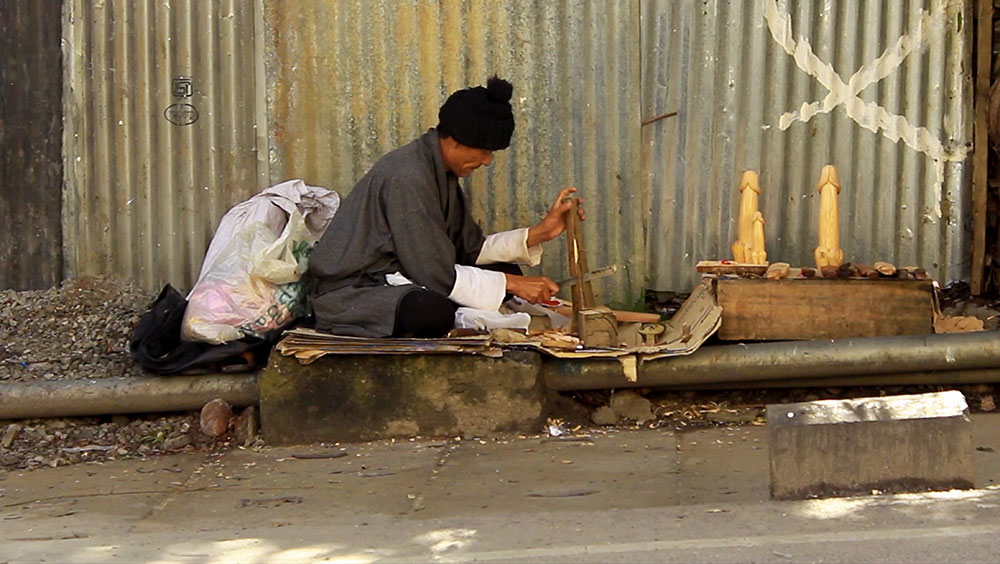Nima Wangdi
Sitting cross-legged on the pavement, he calls out, “Madam!” Two women walking down the road stop and turn. He points to two huge wooden phalluses and tries to sell them. After a brief pause, the women turn and quickly dash away.
He gets back to his work immediately and begins sanding some little phalluses.
This is what Leki, 56, from Tasa in Wangdue, does almost every day. He sits on the pavement on the road connecting the vegetable market and upper town near Zangdopelri.
Leki said that people taunt him, asking if the phalluses are replicas of his own.

Leki also makes knife sheaths, handles, and yangden
Besides the phalluses, Leki also makes knife sheaths, handles, and yangden (a horn-like ornament to adorn the vase during the traditional marchang ceremony).
The phalluses are of different sizes. The biggest measures about 20 centimetres long and the medium about 15 centimetres. The small ones can be worn around one’s neck.
He said wooden phalluses are useful during the consecration ceremony of new traditional houses. They are also nailed above the door to ward off evil.
Leki is not formally trained in wood carving. He is a self-taught man.
Before the pandemic, he used to make a decent income from the sale of wooden phalluses to handicraft stores. Now he is compelled to come out on the street.
Leki can’t do heavy manual work. His right knee was injured a few years ago. He has also had tuberculosis thrice. “Since I can’t do physical jobs, I make my living doing this.”
But doing business on the street is not easy for him. Thromde officials frequently come for inspection and tell him to go elsewhere. “I once moved to a different place and there were not many people,” he said. He then returned.
Leki has relatives in Thimphu, but he sleeps on the verandas of buildings with a few friends at the vegetable market. He said his relatives live far from the town and the taxi fare is high.
“I pack my bedding in the morning and leave to the restaurant where I eat,” he said.
Edited by Jigme Wangchuk


